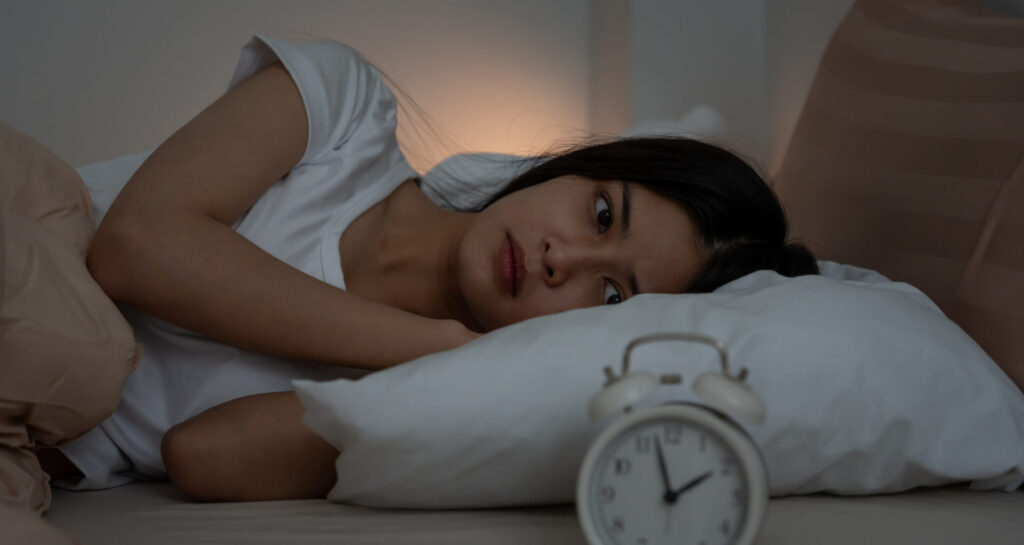The thyroid is involved in many systems in the body, which is one reason why hypothyroidism can involve such a variety of symptoms. One of these symptoms is insomnia.Although many low thyroid symptoms are discomforting, insomnia is among one of the most challenging.
Difficulty falling asleep or staying asleep can quickly destroy an individual’s ability to get the type of quality sleep good health depends upon.
Proper function in the body’s systems is quickly disrupted when it is deprived of sleep…
and healing or recovery become more difficult. Even if you are under medical care for a thyroid condition, the mental and physical stress insomnia creates will likely impede your progress toward feeling better.
The stress or ‘fight or flight’ hormone cortisol is often involved in low thyroid patients’ inability to get a good night’s sleep. This is the hormone the body releases in response to stress, whether it is real as in the case of a physical danger or perceived in less life-threatening but stressful day-to-day situations. Under normal circumstances, cortisol peaks in the morning when energy is most needed, then lowers gradually throughout the day.
When an individual is stressed, higher cortisol levels in the evening can interfere with sleep at bedtime.
Sleep apnea is another potential problem for low thyroid patients that can interfere with sleep. This is a condition in which tissue closes off the flow of air from the nose to the throat, stopping breathing temporarily until the airway is reopened, usually with a snore. This disruption to sleep can occur over and over throughout the night, interrupting sleep again and again.
These are just a few examples of how low thyroid can cause or contribute to insomnia. Yet it’s clear from these two examples, the body operates as a whole—an interconnected system. Unfortunately, standard medical practice tends to neglect a holistic view of a patient’s health. Instead, the focus is on addressing symptoms in isolation, typically through medication.
Instead of investigating hormone imbalance issues to bring cortisol levels into proper balance, sleeping pills are often prescribed.
Even if they are effective at curbing insomnia, they are likely to involve unwanted side effects, and they do nothing to address the underlying causes of the condition.
Low thyroid patients who would like to focus on lasting solutions for insomnia and other symptoms can opt for an alternative type of health care. A practitioner who is educated in functional wellness will investigate the causes of the individual’s thyroid condition and each symptom, relying on in-depth testing to determine exactly what is going on throughout the body.
Once it’s clear why symptoms such as insomnia are occurring, a customized plan of therapeutic support can be developed. Functional wellness practitioners rely on safe, natural therapies to help low thyroid patients feel better, and provide long term solutions rather than quick fixes.
* All information is subject to change. Images may contain models. Individual results are not guaranteed and may vary.

